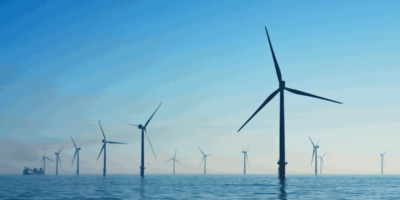The pollution caused by plastic waste has become one of the biggest global challenges 🌏. With billions of tons of plastic littering our oceans, landfills, and ecosystems, businesses are now searching for sustainable alternatives.
The future of plastic alternatives is not just an ecological necessity but also an economic opportunity, redefining industries and consumer behavior. This article explores the rise of innovative alternatives, the materials driving change, and how businesses worldwide are adopting greener solutions. 🌱
1️⃣ The Need for Plastic Alternatives
🌿 Environmental Impact of Plastic Waste
- Plastic production and incineration release greenhouse gases 🚨.
- It takes up to 1,000 years for plastic to decompose.
- Burning plastic releases toxic chemicals, worsening air pollution.
- With fossil fuel depletion, businesses are shifting toward sustainable materials.
🌎 Consumer Demand for Sustainability
- Eco-conscious consumers are demanding biodegradable packaging and sustainable products.
- Ethically sourced materials are gaining popularity.
- Brands ignoring sustainability risk losing customers and market trust.
2️⃣ Sustainable Alternatives to Plastic
🌽 Biodegradable Plastics
- Made from cornstarch, sugarcane, and cassava.
- Decomposes naturally under the right conditions.
🍄 Mushroom-Based Packaging
- Mycelium (fungus roots) can be grown into sturdy, compostable packaging.
- An eco-friendly alternative to Styrofoam.
🌊 Seaweed & Algae-Based Materials
- Used for biodegradable wrappers and plastic-like films.
- Highly renewable and environmentally friendly.
🔄 Recycled & Upcycled Materials
- Businesses are recycling plastics ♻️ to reduce emissions and promote a circular economy.
🎋 Plant-Based Paper & Fiber Alternatives
- Bamboo straws and paper bottles are becoming popular.
- Encourages compostable and sustainable product development.
3️⃣ How Businesses Are Reducing Plastic Usage
🛍️ Retail & Packaging Sector
- Unilever and IKEA are switching to compostable packaging and reusable containers.
🍔 Food & Beverage Industry
- Restaurants are eliminating plastic straws, cutlery, and takeaway boxes.
- Coffee chains now use biodegradable cups.
👕 Fashion & Apparel
- Sustainable fashion brands are moving away from synthetic fibers.
- Some footwear brands use algae-based soles.
📱 Technology & Electronics
- Tech companies are using biodegradable phone cases and recycled materials in devices.
4️⃣ Challenges & Opportunities in the Transition
💰 Cost & Investment
- Sustainable materials are costlier than plastic.
- However, as demand increases, prices will gradually decrease.
📜 Regulations & Business Responsibility
- Governments are implementing plastic bans and offering incentives for sustainable solutions.
📣 Consumer Awareness & Marketing
- Educating consumers about plastic alternatives can increase acceptance and boost sales.
5️⃣ Future Prospects for Plastic Alternatives
🔬 Material Science & Innovation
- Bioplastics, nanotechnology, and biodegradable polymers will shape the future.
♻️ Circular Economy & Waste Management
- Companies will embrace closed-loop production and sustainable design.
🤝 Collaboration & Industry Partnerships
- Corporations, governments, and NGOs must work together to accelerate adoption.
🛒 Consumer-Led Business Shifts
- Eco-conscious consumers will push businesses to adopt sustainable practices.
🏆 Conclusion: The Path to a Greener Future 🌍
Businesses are increasingly embracing sustainable plastic alternatives. 🌱 From biodegradable packaging to plant-based materials, the shift is transforming industries. While challenges remain, collaboration between businesses, consumers, and governments will drive an eco-friendly future. 🌎
Companies leading in sustainability will not only benefit the planet but also thrive in the green economy. 💚♻️

Leave a Reply